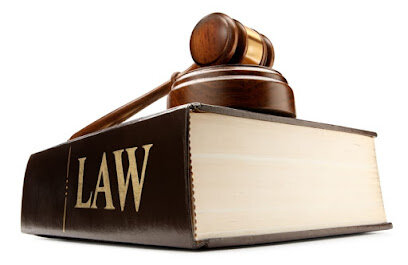Best Criminal Litigation Lawyers in Texas
Share your needs with us, get contacted by law firms.
Free. Takes 2 min.
Or refine your search by selecting a city:
List of the best lawyers in Texas, United States
About Criminal Litigation Law in Texas, United States
Criminal litigation in Texas involves the legal process where the state prosecutes individuals or entities accused of committing crimes. These proceedings are governed by both federal and state laws, with Texas having its own criminal codes and procedural rules. The criminal litigation process covers everything from investigation and arrest to trial and sentencing, ensuring that the accused receives a fair trial and due process. Texas courts take criminal offenses very seriously, often imposing significant penalties for convictions, including jail time, fines, probation, and even the death penalty for the most severe crimes.
Why You May Need a Lawyer
Facing criminal charges in Texas can be overwhelming and life-altering. Here are common situations where legal representation is crucial:
- Being arrested or investigated for a crime
- Receiving a subpoena or being called as a witness in a criminal case
- Charged with a misdemeanor or felony, such as theft, assault, drug offenses, or white-collar crimes
- Facing probation or parole violations
- Wanting to appeal a criminal conviction or sentence
- Dealing with juvenile criminal matters
- Upon notice of a warrant for your arrest
- Accused of domestic violence or sex offenses
- Charged with driving while intoxicated (DWI) or driving under the influence (DUI)
A knowledgeable lawyer can defend your rights, explain legal procedures, gather evidence, negotiate plea deals, represent you in court, and guide you through every step of your case.
Local Laws Overview
Texas criminal law is primarily detailed in the Texas Penal Code and the Texas Code of Criminal Procedure. These codes outline definitions of crimes, penalties, and rules for criminal prosecutions. Key aspects include:
- Classification of Crimes: Offenses are classified as felonies or misdemeanors, each with different levels of severity and punishment. Felonies can result in years of imprisonment, while misdemeanors generally carry shorter jail sentences and lesser fines.
- Criminal Procedure: Texas law sets out rigorous procedures for arrests, searches, bail, indictments, trials, and sentencing to protect the rights of defendants.
- Mandatory Sentencing: Certain crimes have mandatory minimum sentences, especially for repeat offenders or violent crimes.
- Grand Jury Process: Serious felonies require an indictment by a grand jury.
- Right to Trial: Defendants have the right to a jury trial, legal representation, and protection from self-incrimination under the Texas Constitution and the US Constitution.
- Death Penalty: Texas enforces capital punishment and is known for its high rate of executions compared to other states.
- Plea Bargaining: Many criminal cases are resolved through plea deals negotiated between defense attorneys and prosecutors.
Frequently Asked Questions
What should I do if I am arrested in Texas?
Remain calm, ask for an attorney immediately, and avoid making statements to law enforcement without legal counsel present. Exercise your right to remain silent and do not consent to searches without a warrant.
What is the difference between a misdemeanor and a felony?
Misdemeanors are less serious crimes that are typically punishable by up to one year in county jail, while felonies are more serious offenses that can result in longer prison sentences and higher fines.
How does bail work in Texas?
After an arrest, a judge can set a bail amount that you must pay to be released from jail while awaiting trial. If you cannot pay the full amount, you may use a bail bond service. Bail amounts depend on the severity of the offense and your criminal history.
Can I represent myself in a criminal case?
Yes, you have the right to self-representation, but it is not recommended due to the complexities of criminal law and procedures. Hiring a qualified criminal defense lawyer greatly increases your chances of a favorable outcome.
What are my rights when contacted by police?
You have the right to remain silent, the right to an attorney, and the right to refuse searches unless a warrant is presented. Always be respectful but assert your rights clearly.
What happens at a criminal trial in Texas?
The prosecution presents evidence to prove your guilt beyond a reasonable doubt, while your defense attorney can challenge evidence, cross-examine witnesses, and present your case. Trials may be heard by a judge or jury.
Can a criminal record be cleaned or expunged in Texas?
Certain records can be expunged or sealed, but eligibility depends on the case outcome and specific circumstances. An attorney can determine if you qualify for expungement or nondisclosure.
What is a plea bargain and should I accept one?
A plea bargain is an agreement to plead guilty or no contest to certain charges in exchange for a lighter sentence or reduced charges. Always consult with your attorney before accepting any plea deals to understand the consequences.
How are juvenile cases handled in Texas?
Juvenile offenders are dealt with differently than adults, often focusing on rehabilitation. Juvenile courts handle these cases and may offer diversion programs instead of incarceration.
How long does a criminal case usually take to resolve?
Case timelines vary widely based on case complexity, court schedules, and whether the case goes to trial or is settled by plea bargain. Simple cases may resolve in weeks, while more serious cases can take months or even years.
Additional Resources
- Texas Department of Criminal Justice - Provides information on incarceration, probation, parole, and rehabilitation.
- Texas Courts Online - Offers resources on court procedures and finding court records.
- Office of the Texas State Prosecuting Attorney - Information about prosecution in Texas criminal cases.
- Texas Criminal Defense Lawyers Association - Directory of experienced criminal defense attorneys and educational materials.
- Local Public Defender’s Office - Access to legal representation for individuals who cannot afford a private lawyer.
- State Bar of Texas - Lawyer referral service and legal information for the public.
Next Steps
If you or someone you know is facing criminal charges in Texas, consider the following steps:
- Do not discuss your case with anyone except your attorney.
- Contact a qualified criminal defense attorney as soon as possible to assess your situation and build a defense strategy.
- Gather all documentation and information relating to your charges and arrest.
- Follow your attorney’s advice closely and attend all required court dates.
- If you qualify, apply for a court-appointed attorney through the local public defender’s office.
- Take advantage of support offered by local organizations and court resources throughout your case.
Navigating the criminal justice system can be complex, but with the right legal counsel and resources, you can work toward the best possible outcome for your situation.
Lawzana helps you find the best lawyers and law firms in Texas through a curated and pre-screened list of qualified legal professionals. Our platform offers rankings and detailed profiles of attorneys and law firms, allowing you to compare based on practice areas, including Criminal Litigation, experience, and client feedback.
Each profile includes a description of the firm's areas of practice, client reviews, team members and partners, year of establishment, spoken languages, office locations, contact information, social media presence, and any published articles or resources. Most firms on our platform speak English and are experienced in both local and international legal matters.
Get a quote from top-rated law firms in Texas, United States — quickly, securely, and without unnecessary hassle.
Disclaimer:
The information provided on this page is for general informational purposes only and does not constitute legal advice. While we strive to ensure the accuracy and relevance of the content, legal information may change over time, and interpretations of the law can vary. You should always consult with a qualified legal professional for advice specific to your situation.
We disclaim all liability for actions taken or not taken based on the content of this page. If you believe any information is incorrect or outdated, please contact us, and we will review and update it where appropriate.
Browse criminal litigation law firms by city in Texas
Refine your search by selecting a city.
















